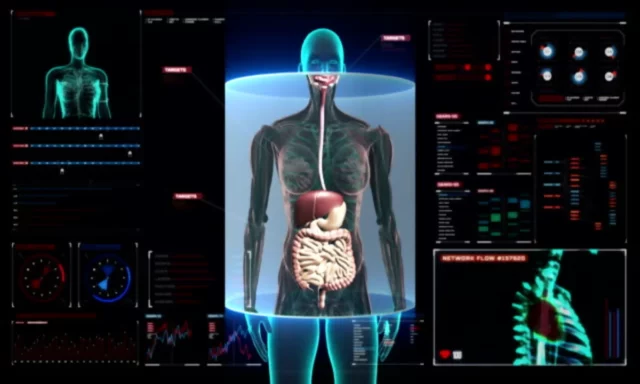Specialists recommend a healthy lifestyle in all lines to maintain a balanced microbiota.The digestive system performs essential tasks and processes to maintain adequate health. To carry it out, it needs the help of small inhabitants that colonize us and that together bear the name of microbiota. These microorganisms and the genes they express are considered as a second “fingerprint”, since they are different between each individual. Each adult harbors millions of different species of bacteria, which confer beneficial properties for health.
The microbiota is acquired from the moment of birth and evolves throughout life according to lifestyle, environment and diet. For Dr. FarhadRezvani, Equilibrium gastroenterologist, the study of the microbiota has increased exponentially. It is considered as the future ally in the management of chronic conditions, where traditional medicine has not achieved the desired results.
In different parts of the world, studies are carried out with new germs for the treatment of various diseases. Fecal microbiota transplants (FMT) have even been performed, which consist of obtaining the fecal microbiota from the feces of a healthy donor and transferring it to the colon of a patient to restore it. In addition, the creation of “stool banks” to fight against the silent extinction of bacteria and the management of various medical conditions.
“The microbiota must be cultivated from the first day of birth until the last moment of our lives, since it depends on the bacteria we have and the relationship with the host. It implies a balance in all lines: health of mind and body”, mentioned Rezvani.
The first exposure to these germs occurs at birth. In a vaginal delivery, babies are exposed to the mother’s “healthy” bacteria. On the other hand, those born by caesarean section come into contact with skin bacteria and even hospital microorganisms. Additionally, exclusive breastfeeding is essential in the first 6 months of life, as it enriches the microbiome and confers various substances to increase the child’s defenses.
Its three main functions for health are:
- Food digestion: especially those that are not digested in the small intestine, as they are fermented by the colonic microbiota, thus releasing essential nutrients for the proper functioning of the gastrointestinal system.
- Development of the immune system: because the gastrointestinal system is the gateway to our body. The gut bacteria become the intermediary in communication with the immune system. This allows it to defend against potentially dangerous substances or germs entering, but also to identify nutrients and other beneficial substances that need to be tolerated and absorbed.
- Barrier effect: strengthening the mucus layer that protects against the entry of potentially dangerous toxins into the bloodstream.
The gastroenterologist explains that the large intestine, known as the colon, is where most of the microbiome is housed. The small intestine should have relatively few bacteria, since it is responsible for the absorption of nutrients through enzymes that are like “scissors” that cut food into small molecules. When this bacterial overgrowth begins in the small intestine, called “SIBO” by its acronym in the English language; The consequence is that digestion is not adequate, which is why some symptoms such as chronic diarrhea, pain and abdominal distension appear.
“Other diseases that have been linked to microbiota disorders is Helicobacter Pylori infection, a bacterium that is a risk factor for gastric cancer. The repercussion of the microbiota has also been seen in endocrine diseases such as obesity, cholesterol disorders, diabetes and hypertension. In skin problems such as atopic dermatitis, food allergies, gluten and milk intolerance. They also influence nervous system diseases such as depression, anxiety, Alzheimer’s, autism among others. The spectrum of diseases that can be related to these imbalances or this dysbiosis, which is the alteration in the bacteria in our intestine, is enormous. Whether microbiome disturbances are the cause or rather appear as a consequence of these various disorders is still being studied,” says the specialist.

Microbiota modulators
- Prebiotics: the “food” of the bacteria. Generally, the bacteria feed on carbohydrates that are fermentable or indigestible, such as fiber, which becomes a substrate for these bacteria. They are acquired through food, through the consumption of shelled fruits, fresh vegetables, vegetables and legumes.
- Probiotics: are germs, usually bacteria or yeast. These microorganisms will confer beneficial properties to the organism beyond that of a supplement, when they are administered with the appropriate doses to generate an adequate clinical effect.
“When an antibiotic is used, a probiotic must be used at least during the treatment and for at least 1 or 2 more weeks to repopulate the microbiota that is going to be affected”, mentioned the gastroenterologist.
Recommendations to maintain a healthy microbiota:
- Reduce stress.
- Eliminate smoking or vaping.
- Stimulate breastfeeding.
- Use medications rationally.
- Use probiotics whenever an antibiotic is used
- Do not use antibiotics unnecessarily, especially in children.
- Encourage the consumption of fruits, vegetables and legumes.
- Reduce the consumption of fats and excess protein of animal origin.
- Have a healthy lifestyle, avoid a sedentary lifestyle.

